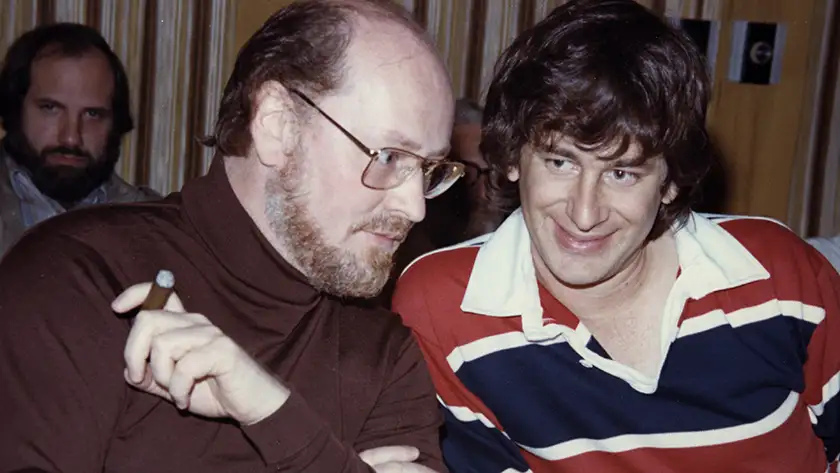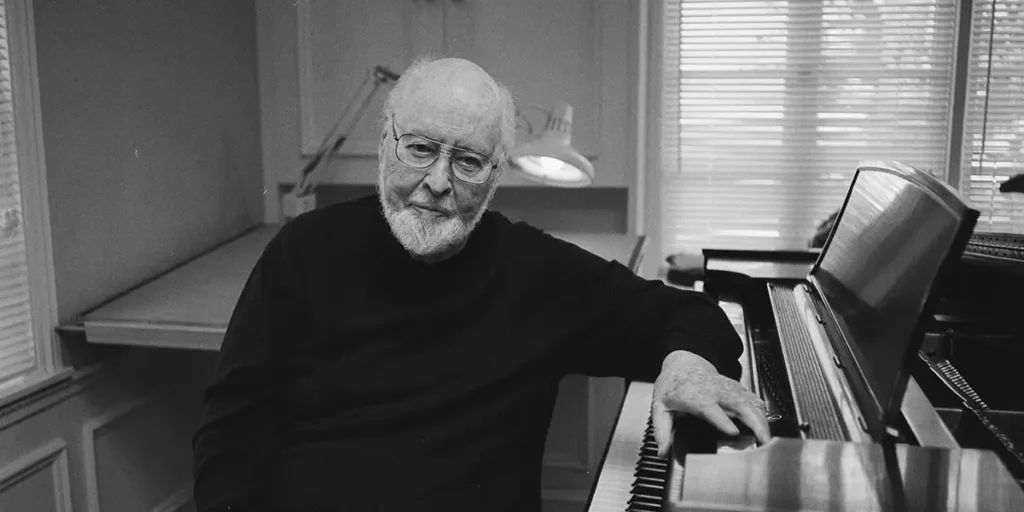Going for breadth rather than depth, Music by John Williams is still an affectionate, inspiring documentary that pays a special tribute to the great composer.
Director: Laurent Bouzereau
Genre: Documentary, Music, Biographical
Run Time: 105′
World Premiere: October 23, 2024 at AFI Fest
Global Release Date: November 1, 2024
Where to Watch Music by John Williams: Stream it on Disney Plus
“The sound and music are fifty percent of the entertainment in a movie”, once said director George Lucas, and this claim rings particularly true regarding the work of composer John Williams, known for scoring such films as Jaws, Star Wars, E.T., Indiana Jones, Jurassic Park, Home Alone, Schindler’s List, and Harry Potter. Laurent Bouzereau’s new documentary Music by John Williams is first and foremost a tribute to John Williams’ talent and work, and is hardly an introduction to something completely new. However, what this film lacks in novelty and depth, it makes up for in sincerity and breadth of films covered.
Music by John Williams is a documentary that aims to be a little bit of everything: a biographical account, an introduction to Williams’ personality and work ethic, a presentation of numerous bits of film trivia, and an insight into other celebrities’ views on the composer’s overall contribution to the world of music and film.
Just as the name of composer Bernard Herrmann will be forever tied to Alfred Hitchcock, Ennio Morricone’s one to Sergio Leone, and Danny Elfman’s one to that of Tim Burton, so John Williams will be forever linked to Steven Spielberg. The documentary often focuses on that incredible, often endearing, collaboration between the two great men, letting them speak for themselves on their deep friendship and working bond, its challenges and triumphs. And, just like the name Steven Spielberg, the name of John Williams is also indistinguishable from the emergence of Hollywood’s first ever blockbuster – Spielberg’s Jaws, which Williams scored in 1975.
With his previous extensive experience of scoring for both drama and comedy on television, and with his deep understanding of orchestral music, Williams seemed to know instinctively how to present any story through music. This also helped him to work out a magical formula of what makes a perfect film score. His film music touches us, transports us, inspires us, instils in us childhood wonder, and makes us love every scene presented on screen. It is clear that John Williams’ music made films.
After a brief introduction to John Williams’ immense talent and his undeniable influence in the world of modern film, the documentary then goes through each major film the composer scored, using stills from films, archive footage, and interviews with various people. So, in a rather hectic, but entertaining manner, the film conveys the emotional state of Spielberg when he first heard that moving score to Schindler’s List, the fact that Williams wanted to capture the wonder of flying when composing the E.T. theme, and how Harrison Ford’s charm and spontaneity as Indiana Jones influenced Williams’ music choices.

Music by John Williams works best when it departs from general statements and deserved praises to focus on particular aspects of Williams’ craft, trying to figure out what has made him such a unique film composer. His early openness to different musical genres and styles may be one of the keys to unlocking the mystery of his genius. John Williams, born in New York in 1932, was brought up in a musical family, and then trained as a pianist specialising in diverse genres.
He loved jazz, even producing his own jazz albums, and has always favoured orchestral, concert music, being the voice for the importance of live performances. His own concert music is also noted for experiments with impressionism and atonal music. This versatility was Williams’ strength that also led him to producing such completely different music scores as the sorrowful, beautiful theme to Schindler’s List and that cheeky, jazz-inspired score to Catch Me If You Can.
And again, the true insight and interest come in this film not so much from all the interviewees, including Williams’ own daughter Jennifer and Coldplay singer Chris Martin, but from those instances in the film which shed light on the mind of the composer and his way of thinking about music. What does he value in it? How a story can be shaped through music? And, what music can really bring to a film scene? For example, it is interesting to find out in Music by John Williams that, although initially averse to sequels, Williams has been adamant to scoring them to preserve the overall cohesiveness and integrity of one musical vision throughout a series.
“I cannot tell you that, as a young man in my twenties, I intended to do anything else professionally than play the piano. The fact that I ended up composing professionally, and particularly for film, was a series of fortuitous accidents,” says Williams in this documentary. This sounds unbelievable, but it is also a testament to the composer’s humility, lifelong hard-work, and his sheer love and openness for all aspects and kinds of music, be it pop, jazz, classical or film music, all deemed worthy of appreciation in their own right.
The legacy of John Williams is so indisputable and far-reaching that it is now impossible to even think abstractly about film music without also recalling his name. And, the main idea of Music by John Williams is once again to restate this sentiment, rather than explore anything in depth or introduce any new aspects of thinking about his work. However, the film is still a touching love letter to Williams’ craft that will delight millions of his fans.
Music by John Williams is now available to watch on Disney Plus.

